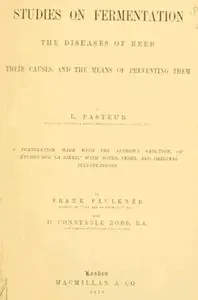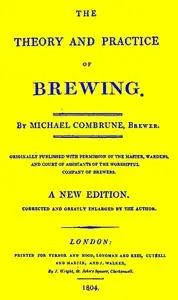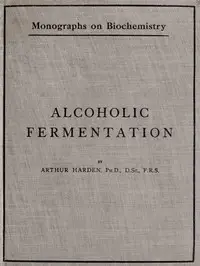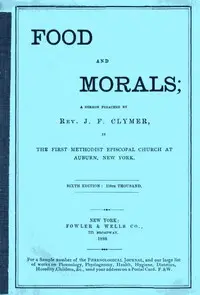"Studies on Fermentation" by Louis Pasteur is a late 19th-century scientific work that explains the tiny organisms behind fermentation, especially in beer making. Pasteur looks at what goes wrong in beer brewing, leading to spoilage that makes it undrinkable. He talks about how keeping things clean and controlling the temperature are keys to successful fermentation. He wanted to help brewers make better, safer beer, particularly after a war created brewing problems. This book shines a light on the unseen world of microbes and their effect on the drinks we enjoy, changing the brewing industry forever.

Studies on Fermentation The diseases of beer, their causes, and the means of preventing them
By Louis Pasteur
Discover the world of microscopic organisms and how to stop them from ruining beer in this transformative scientific exploration of fermentation.
Summary
About the AuthorLouis Pasteur was a French chemist, pharmacist, and microbiologist renowned for his discoveries of the principles of vaccination, microbial fermentation, and pasteurization, the last of which was named after him. His research in chemistry led to remarkable breakthroughs in the understanding of the causes and preventions of diseases, which laid down the foundations of hygiene, public health and much of modern medicine. Pasteur's works are credited with saving millions of lives through the developments of vaccines for rabies and anthrax. He is regarded as one of the founders of modern bacteriology and has been honored as the "father of bacteriology" and the "father of microbiology".
Louis Pasteur was a French chemist, pharmacist, and microbiologist renowned for his discoveries of the principles of vaccination, microbial fermentation, and pasteurization, the last of which was named after him. His research in chemistry led to remarkable breakthroughs in the understanding of the causes and preventions of diseases, which laid down the foundations of hygiene, public health and much of modern medicine. Pasteur's works are credited with saving millions of lives through the developments of vaccines for rabies and anthrax. He is regarded as one of the founders of modern bacteriology and has been honored as the "father of bacteriology" and the "father of microbiology".














